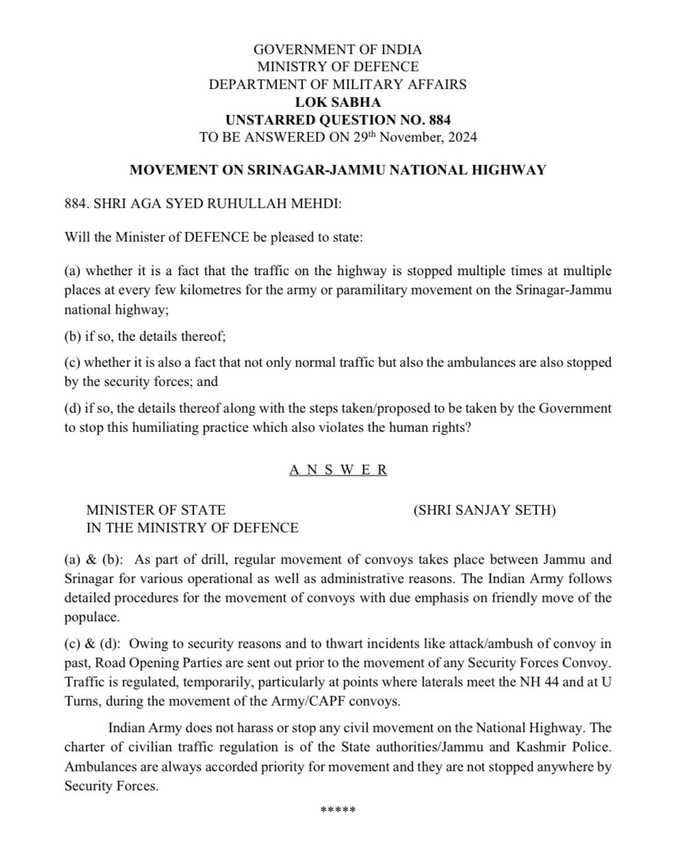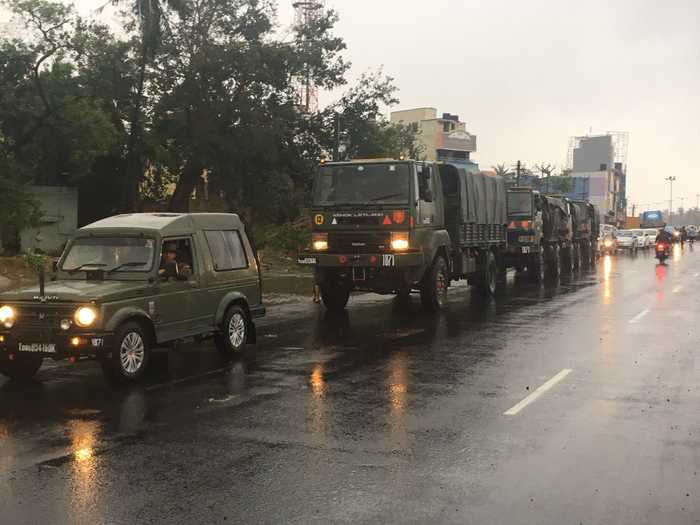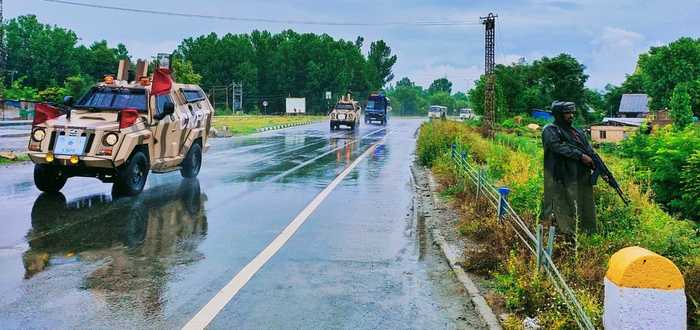Published 11:25 IST, November 30th 2024
Pulwama Lessons Forgotten? Kashmiri MP Questions Army Convoy Stops, Faces Backlash
Mehdi's latest remarks align with a pattern of exploiting sensitive issues for political mileage.
- Defence
- 3 min read
Srinagar, India - Member of Parliament Aga Syed Ruhullah Mehdi has once again drawn attention for his controversial stance, this time targeting the security protocols followed by the Indian Armed Forces and paramilitary units along the Srinagar-Jammu National Highway (NH-44). His recent communication to Defence Minister Rajnath Singh questioned the necessity of halting civilian traffic, including ambulances, during military convoy movements, labeling it as a “humiliating practice” and alleging human rights violations.
This move has sparked criticism, with many viewing it as yet another attempt by Mehdi to discredit the efforts of security forces safeguarding the Valley.
Aga Syed Ruhullah Mehdi, a known critic of India's governance in Jammu and Kashmir, continues to toe a line that undermines national interests. His claims of harassment and alleged human rights violations fail to account for the security realities of a region plagued by terrorism. Mehdi’s insinuations against the Armed Forces contradict the ground realities, where the regulation of civilian traffic during convoy movements is a measured and essential response to past attacks, including the deadly Pulwama bombing in 2019.
Government's Firm Response: Security Over Convenience

The Ministry of Defence, in its response, outlined the necessity of these protocols:
- Operational Importance: Convoys are essential for the movement of personnel, supplies, and equipment critical to the region’s security.
- Preempting Threats: Road Opening Parties (ROPs) ensure that highways are clear of potential ambushes or explosives, a strategy borne out of experience from previous terror attacks.
- Prioritizing Emergencies: Contrary to Mehdi’s claims, ambulances and emergency vehicles are always given priority and are not halted by security forces.
Defence officials emphasized that traffic stoppages are temporary and occur only at vulnerable points, such as U-turns and intersections.
Security Imperatives: Lessons from Pulwama
Mehdi’s dismissive attitude toward the risks faced by security convoys overlooks the devastating impact of past terror strikes. The 2019 Pulwama attack, which claimed the lives of 40 CRPF personnel, was a direct result of lapses in convoy security. The attack, orchestrated by Pakistan -based Jaish-e-Mohammed, showcased how terrorists exploit even minor vulnerabilities in movement protocols.
Following such incidents, convoy safety has been prioritized, with stringent measures in place to prevent a recurrence. Mehdi’s attempts to politicize these protocols disregard the sacrifices made by security forces to ensure the safety of both civilians and personnel.

Aga Syed Ruhullah Mehdi, a leader of the Jammu and Kashmir National Conference (JKNC), has a history of making controversial statements. Known for his opposition to the abrogation of Article 370, Mehdi often aligns himself with narratives that seek to undermine the Indian state. His recent comments accusing the government of spreading “blatant lies” on social media further expose his political opportunism and disregard for national security.
The Reality of Security Measures
Contrary to Mehdi’s rhetoric, the halting of civilian traffic during military movements is a standard operating procedure worldwide, especially in high-risk zones. These measures are neither arbitrary nor excessive but are guided by intelligence inputs and the need to protect both convoys and civilians.

The inconvenience caused by temporary traffic stoppages pales in comparison to the potential devastation of unchecked terror strikes. Mehdi’s stance, therefore, not only undermines the efforts of security forces but also risks emboldening anti-national elements. In a region that has suffered decades of militancy, constructive leadership is vital.
Updated 11:27 IST, November 30th 2024